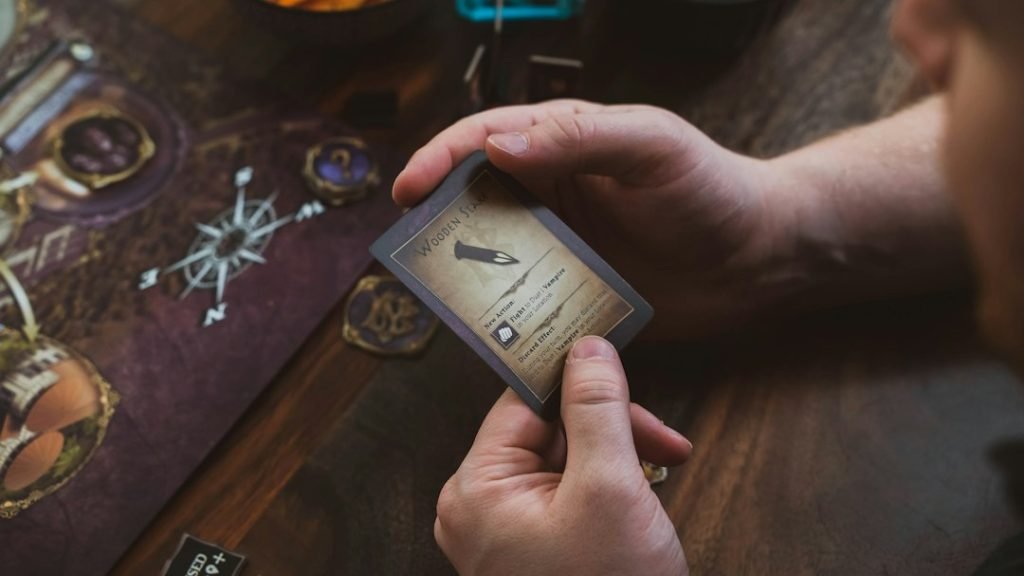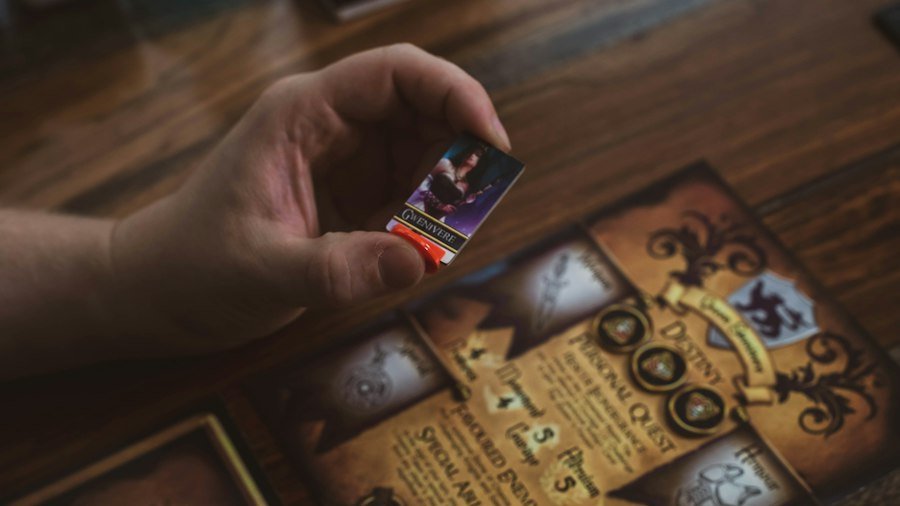

Norwegian Vocabulary for Board Games and Puzzles: Playful Learning
Learning a new language can be a challenging task, but it doesn’t have to be boring. One way to make the process more enjoyable is by incorporating board games and puzzles into your language learning routine. Not only are these activities fun, but they also provide an opportunity to practice and expand your vocabulary in a practical and engaging way.
Board games and puzzles are a great way to learn Norwegian vocabulary because they allow you to see the words in context and use them in a meaningful way. Whether you’re playing a game of chess or solving a crossword puzzle, you’ll be exposed to a variety of words and phrases that are relevant to the game. This not only helps you remember the words better, but it also gives you a chance to practice using them in conversation.
Table of Contents
ToggleBenefits of Playful Learning
Playful learning has been shown to have numerous benefits for language learners. One of the main advantages is increased motivation. When you’re having fun while learning, you’re more likely to stay engaged and motivated to continue practicing. This can help you overcome any obstacles or challenges that may arise during the learning process.
Another benefit of playful learning is increased engagement. When you’re actively participating in a game or puzzle, you’re fully focused on the task at hand. This can help improve your concentration and attention span, which are important skills for language learning.
Playful learning also promotes better retention of information. When you’re having fun, your brain releases dopamine, a neurotransmitter that is associated with pleasure and reward. This can enhance your memory and make it easier for you to remember new words and phrases.
Basic Norwegian Vocabulary for Board Games and Puzzles
To get started with learning Norwegian vocabulary for board games and puzzles, here are some basic words that you should know:
1. Brikke – Piece
2. Brett – Board
3. Puslespill – Puzzle
4. Kort – Card
5. Kaste – To throw
6. Trekke – To draw
7. Vinner – Winner
8. Taper – Loser
9. Spiller – Player
10. Poeng – Points
These words can be used in various contexts. For example, you can say “Jeg har mistet en brikke” (I have lost a piece) or “La oss spille et puslespill” (Let’s play a puzzle).
Intermediate Norwegian Vocabulary for Board Games and Puzzles
Once you’ve mastered the basic vocabulary, you can move on to more intermediate words related to board games and puzzles:
1. Strategi – Strategy
2. Kortstokk – Deck of cards
3. Konge – King
4. Dronning – Queen
5. Løper – Bishop
6. Tårn – Rook
7. Bonde – Pawn
8. Rute – Square
9. Stokke – To shuffle
10. Bytte – To exchange
These words can be used in sentences such as “Jeg har en god strategi” (I have a good strategy) or “Kongen kan flytte i alle retninger” (The king can move in any direction).
Advanced Norwegian Vocabulary for Board Games and Puzzles
For those who are more advanced in their Norwegian language learning journey, here are some advanced vocabulary words related to board games and puzzles:
1. Sjakk – Chess
2. Domino – Dominoes
3. Rollespill – Role-playing game
4. Labyrint – Labyrinth
5. Kryssord – Crossword puzzle
6. Ordsky – Word cloud
7. Logikkspill – Logic game
8. Hjernebryter – Brainteaser
9. Terning – Dice
10. Kombinasjon – Combination
You can use these words in sentences like “Jeg elsker å spille sjakk” (I love playing chess) or “Dette er et vanskelig logikkspill” (This is a difficult logic game).
Tips for Learning Norwegian Vocabulary for Board Games and Puzzles

To make the most of your language learning experience with board games and puzzles, here are some tips to keep in mind:
1. Practice regularly: Consistency is key when it comes to language learning. Set aside dedicated time each day or week to play games or solve puzzles in Norwegian.
2. Use flashcards: Create flashcards with the vocabulary words you want to learn and review them regularly. This will help reinforce your memory and improve your recall of the words.
3. Play with others who speak the language: Find a language exchange partner or join a language learning group where you can play games and solve puzzles together in Norwegian. This will give you an opportunity to practice speaking and listening skills in a fun and interactive way.
4. Explore additional resources: There are many online resources available that offer games and puzzles specifically designed for language learners. Take advantage of these resources to expand your vocabulary and improve your language skills.
Norwegian Classes for Board Games and Puzzles
If you prefer a more structured approach to learning Norwegian vocabulary for board games and puzzles, there are classes and programs available that incorporate these activities into the curriculum.
For example, the Language Center in Oslo offers a course called “Norwegian for Gamers” where students learn Norwegian through playing board games. The course focuses on vocabulary related to different types of games, as well as strategies and rules.
Norwegian Course for Playful Learning
If you’re looking for a comprehensive Norwegian language course that focuses on playful learning through board games and puzzles, the Norwegian Course for Playful Learning is a great option.
This course is designed for beginners and covers a wide range of vocabulary and grammar topics related to board games and puzzles. The course includes interactive lessons, practice exercises, and games that allow you to apply what you’ve learned in a fun and engaging way.
To enroll in the course, simply visit the website and sign up. You’ll have access to all the course materials and can learn at your own pace.
Learn Norwegian through Board Games and Puzzles
While learning vocabulary is important, board games and puzzles can also be used as a tool for learning other aspects of the Norwegian language. For example, playing games can improve your grammar skills by exposing you to different sentence structures and verb conjugations.
Solving puzzles can also enhance your comprehension skills as you read and interpret clues or instructions in Norwegian. Additionally, playing games with others can improve your conversation skills as you engage in dialogue and discuss strategies or rules.
Norwegian Language School for Playful Learning
If you’re looking for a more immersive language learning experience, consider enrolling in a Norwegian language school that specializes in playful learning through board games and puzzles.
One such school is the Playful Language School in Bergen. They offer a variety of classes and programs that incorporate board games and puzzles into the curriculum. These classes are designed to be interactive and engaging, allowing students to learn Norwegian in a fun and enjoyable way.
To enroll in classes or programs offered by the Playful Language School, visit their website or contact them directly for more information.
In conclusion, learning Norwegian vocabulary for board games and puzzles can be an enjoyable and effective way to improve your language skills. Whether you’re a beginner or more advanced learner, there are resources available to help you incorporate these activities into your language learning routine. So grab a game or puzzle, gather some friends, and start practicing your Norwegian today!
If you’re interested in expanding your Norwegian vocabulary beyond board games and puzzles, you might find the article “The Family in Norwegian: En Familie, Min Familie” helpful. This article provides a comprehensive guide to learning family-related vocabulary in Norwegian, from basic terms to more advanced concepts. Whether you’re a beginner or intermediate learner, this article will help you strengthen your language skills and enhance your understanding of Norwegian culture. Check it out here!
FAQs
What is the article about?
The article is about Norwegian vocabulary for board games and puzzles, and how it can be used for playful learning.
Why is it important to learn Norwegian vocabulary for board games and puzzles?
Learning Norwegian vocabulary for board games and puzzles can help improve language skills, increase vocabulary, and make playing games more enjoyable.
What are some common Norwegian words used in board games and puzzles?
Some common Norwegian words used in board games and puzzles include brikker (pieces), terning (dice), brett (board), puslespill (puzzle), and kort (cards).
How can I use Norwegian vocabulary for board games and puzzles for playful learning?
You can use Norwegian vocabulary for board games and puzzles by playing games with Norwegian-speaking friends or family members, practicing vocabulary with flashcards or quizzes, or using online resources to learn new words.
Are there any resources available for learning Norwegian vocabulary for board games and puzzles?
Yes, there are many resources available for learning Norwegian vocabulary for board games and puzzles, including online dictionaries, language learning apps, and language exchange programs.
If you want to learn Norwegian, you can register for classes here. We look forward to hearing from you and helping you become fluent in Norwegian.





